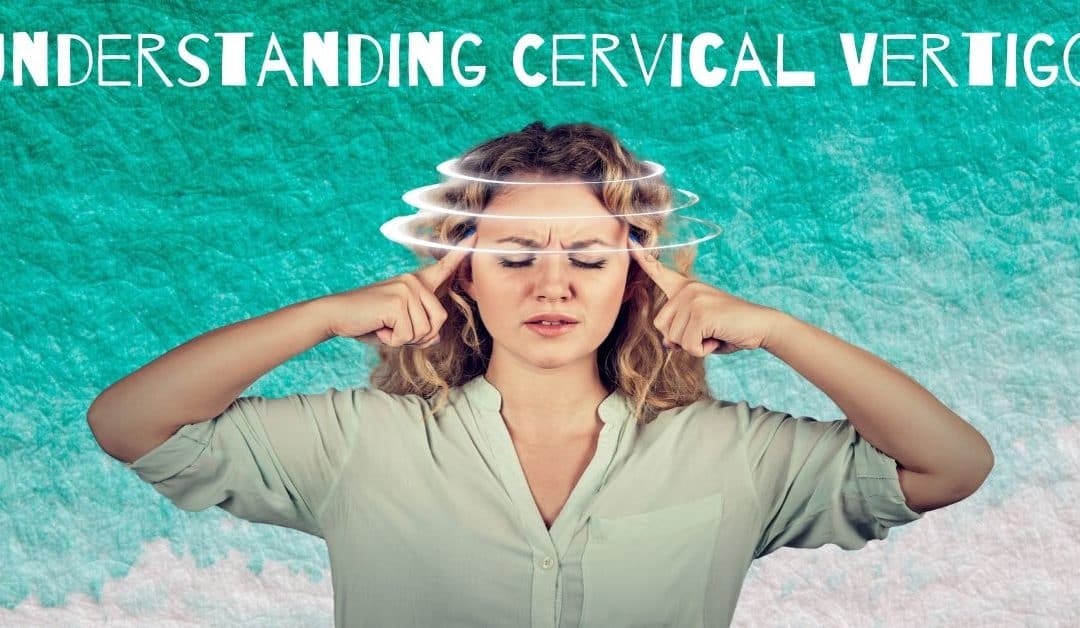Have you ever felt that the world is spinning around you even though you are standing still? Have you been suffering from dizziness and are wondering what is exactly going on? Another term for dizziness is vertigo. Cervical vertigo is a type of vertigo that results from a certain neck posture or movement. It is often provoked by a particular neck posture no matter what the orientation of the head is to gravity. Although the effects of gravity or the orientation of the head influence vertigo, cervical vertigo is not related to the orientation of the head. For example, it can be dizziness provoked by turning the head about the vertical axis, while sitting upright.
Causes of Cervical Vertigo
There are a few different causes of cervical vertigo, such as trauma to the neck or poor posture. Vertigo is often related to inner ear problems, which may throw off the body’s center of balance, however, with cervical vertigo, the cause of the dizziness is actually in the neck. Cervical vertigo itself is generally a symptom of an underlying issue, such as a neck injury. A person will often experience symptoms of dizziness after a triggering event, typically from turning their head suddenly. This dizziness may last for a few minutes to a few hours. Some causes of cervical vertigo include;
Neck Injuries
People with cervical vertigo often report having neck pain. There are a few potential causes of cervical vertigo, many of which are caused by a traumatic injury to the neck. Traumatic injuries, such as whiplash from a vehicle accident may cause damage in the head and neck, which may lead to cervical vertigo.
Atherosclerosis
Blockages in the arteries of the neck may lead to injury in the area that could cause vertigo. This could be due to atherosclerosis, a disease of the arteries characterized by the deposition of plaques of fatty material on their inner walls.
Osteoarthritis
Osteoarthritis is the most common form of arthritis, affecting millions of people worldwide. It occurs when the protective cartilage that cushions the ends of your bones wears down over time. the disorder most commonly affects joints in your hands, knees, hips and spine Advanced osteoarthritis in the spine may cause the vertebrae in the neck to wear down, which can put excess pressure on the nerves, arteries, or spinal cord itself. This could send inappropriate signals to the brain or block the flow of blood, causing vertigo.
A slipped disk
A slipped disk, or herniated disk, occurs when the softer center of a spinal disk pushes out through a crack in the spine. This condition may push into a nerve or artery and cause dizziness that can be classified as cervical vertigo.
Poor posture
Poor posture may also contribute to cervical vertigo. Over time, the cervical spine may compress due to poor sitting posture. This can put extra pressure on the arteries in the neck and can cause vertigo.Top of Form
Prevention
Proper posture can make a world of difference to ease cervical vertigo. For many, correct posture is something that must be learned after a lifetime of becoming accustomed to less than desirable posture. A physical therapist or yoga instructor can help you find the best posture to keep pressure off your spine and keep you feeling balanced. Unfortunately, cervical vertigo cannot be prevented in every case like in the instance of sustaining whiplash such as in vehicle accidents. In these instances, the road to recovery is slow. It can help to, exercise the muscles in the neck to keep them strong may help keep weight off the cervical disks and reduce pressure in the area.
Treatments and Remedies
Once the cause of your dizziness is isolated your physician will be more able to treat your issues more effectively. This may include taking drugs to ease the dizziness, as well as medications to reduce pain and relax the muscles. Doctors often prescribe physical therapy and posture training to help create space in the neck, increase range of motion, and build strength in the muscles. This alone may relive pressure in the area and help reduce your balance problems. To find out more about cervical vertigo and how you can treat it contact us at Ear, Nose and Throat Consultants. We can help you get to the bottom of your dizziness issues and help you get the treatment you need.

